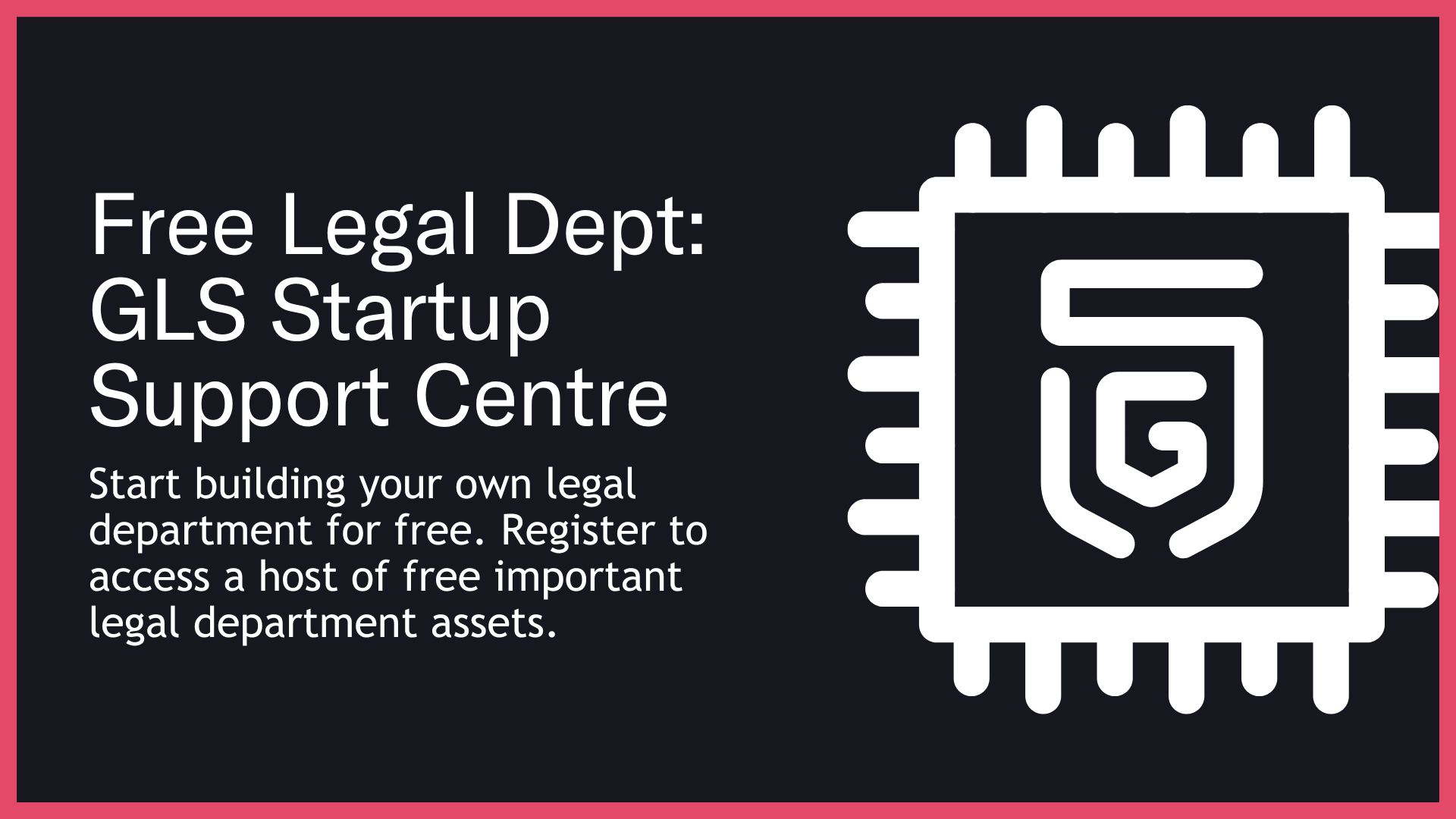GLS Legal Support Centre
Legal Made Easy For Startups
Back
Legal Entity Selection
02Why Getting This Right Really Matters
03Consequences of Not Addressing This Issue
04What You Should Be Doing
05How These Risks Can Play Out – Case Studies
06Key Definitions Related to This Issue (Singapore Focus)
07Final Thoughts
08How GLS Can Help You
09Useful GLS Resources for Start-Ups:
Introduction
“Your business structure isn’t just a formality -it’s the shield, engine, and legal skeleton of your company.” – Matt Glynn
Choosing the right legal entity is one of the most consequential early decisions you’ll make as a founder. Get it wrong, and you could be signing up for unnecessary taxes, personal liability exposure, investor rejection, or even growth restrictions.
Many founders treat entity choice like ticking a form - but in reality, it’s the legal and operational foundation for how you operate, raise capital, manage governance, and protect yourself.
In this start-up stage review, we’ll explore why the right entity matters, what’s at stake if you get it wrong, and how to make a choice that supports your growth plans and risk profile.
Why Getting This Right Really Matters
The Legal Entity Selection stage is critical to your start-up journey because it determines:
◼️Liability Protection – Whether your personal assets are shielded from business debts.
◼️Tax Efficiency – How profits are taxed and what deductions are available.
◼️Funding Readiness – Some structures are far more attractive to serious investors.
◼️Operational Flexibility – Certain entities allow smoother decision-making and ownership changes.
◼️Regulatory Fit – Some industries mandate specific entity types to operate.
◼️Brand Credibility – A formal structure builds trust with customers, partners, and suppliers.
◼️Scalability – Your ability to expand locally and internationally without costly restructuring.
◼️Exit Options – The entity you choose impacts how you can sell or transfer ownership.
Consequences of Not Addressing This Issue
Legal Implications
◼️Personal Liability – Sole proprietors can lose their homes, savings, and assets in a lawsuit.
◼️Compliance Breaches – Using the wrong entity for regulated industries can result in penalties or shutdowns.
Founder Relationship Issues
◼️Equity Disputes – Without formal shareholding structures, ownership disagreements are common.
◼️Unequal Risk Exposure – Some founders may be personally liable while others are protected.
Commercial Implications
◼️Investor Reluctance – Poor structuring scares off professional investors.
◼️Funding Blocks – Certain financing options are unavailable without specific structures.
Operational Implications
◼️Governance Gaps – Informal structures lack decision-making frameworks.
◼️Scaling Limits – Restrictive entity rules make it hard to bring in new partners or shareholders.
Business Valuation Issues
◼️Lower Valuation – Inefficient structures increase perceived risk.
◼️Sale Complications – Wrong entity choice can make exits legally and financially complex.
What You Should Be Doing
1. Understand Available Entity Types
◼️Research common options: sole proprietorship, partnership, private limited company (Pte Ltd), LLP, public company.
◼️Know their pros, cons, and suitability for your sector.
2. Assess Your Risk Profile
◼️Consider industry-related liability exposure.
◼️Factor in possible lawsuits, debt obligations, and operational risks.
3. Align with Growth Plans
◼️Choose a structure that supports scalability, investor entry, and ownership changes.
4. Get Professional Advice
◼️Engage a corporate lawyer and accountant for jurisdiction-specific guidance.
◼️Confirm industry-specific legal requirements.
5. Review Regularly
◼️Revisit your entity choice as your start-up evolves.
The above are just a few of the steps you can consider taking. There are many more things that need to be done to ensure the associated risks are effectively and pragmatically dealt with.
How These Risks Can Play Out – Case Studies
Case Study 1: The Sole Proprietor’s Nightmare
A Singaporean freelancer scaled her work into a full-time business but stayed a sole proprietor. When sued by a client for breach of contract, she lost -and her personal bank accounts, car, and home were seized. A private limited company structure could have shielded her personal assets.
Case Study 2: The Partnership Fallout
Two friends launched a marketing agency under a general partnership. One took on significant debt without telling the other, leaving both personally liable. The business collapsed, their friendship ended, and they spent years repaying debts.
Case Study 3: The Investor Turnaway
A promising SaaS start-up incorporated as an LLP for tax advantages. When pitching to a VC, the investor walked away because equity participation was impossible under LLP rules. A Pte Ltd structure would have enabled investor equity and unlocked funding.
Final Thoughts
Your entity choice isn’t a minor admin step - it’s a strategic decision that shapes your legal exposure, tax obligations, funding options, and exit possibilities. The right choice can act as a launchpad. The wrong one can turn into a liability time bomb.
How GLS Can Help You
GLS can help you make the right entity choice and ensure your structure supports both short-term goals and long-term growth, including:
◼️Advising on entity selection for your industry and jurisdiction.
◼️Drafting founder agreements and shareholding structures.
◼️Ensuring your entity is compliance-ready from day one.
◼️Advising on cross-border structuring for international expansion.
◼️Assisting with entity conversions when scaling.
Useful GLS Resources for Start-Ups:
◼️GLS Start Up Centre
◼️GLS Knowledge Hub
◼️GLS Support Plan
◼️GLS Legal On Call™ – Free Trial
◼️Book a Complimentary Consultation
◼️GLS Start Up Clinic – join our next pro bono legal clinic.

